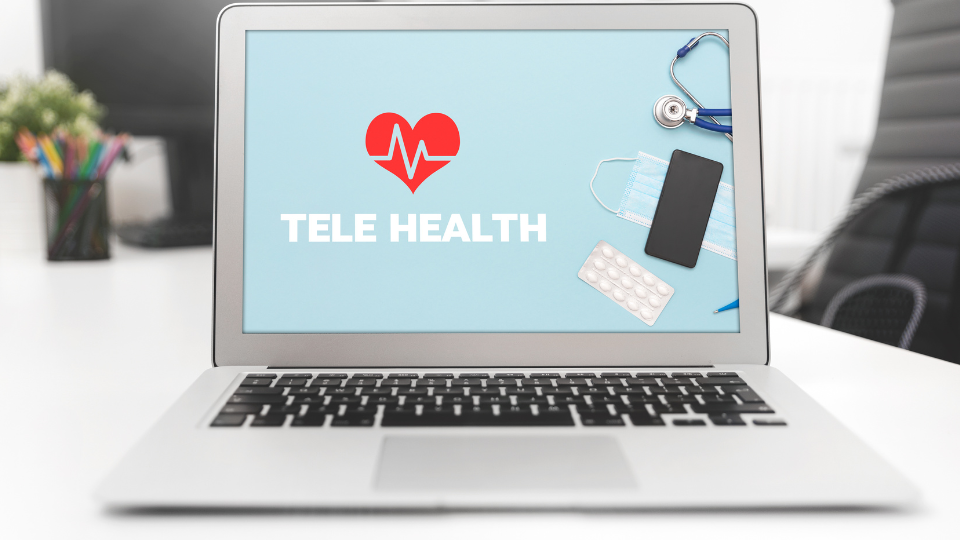Addiction recovery is a complex journey that requires support, understanding, and access to effective treatment options. In recent years, telehealth has emerged as a transformative tool in the field of addiction recovery, offering individuals a convenient and flexible way to seek help. This article explores how telehealth can facilitate addiction recovery, the benefits it brings, and how Doctronic is leading the charge in making healthcare more accessible.
 The Rise of Telehealth in Addiction Treatment
The Rise of Telehealth in Addiction Treatment
Telehealth has gained significant traction in recent years, particularly in response to the COVID-19 pandemic, which necessitated a shift from in-person appointments to virtual care. This transition has proven to be particularly beneficial for those seeking help for addiction. Telehealth allows individuals to connect with healthcare providers from the comfort of their own homes, eliminating barriers such as transportation issues and stigma associated with visiting treatment centers.
Accessibility and Convenience
One of the most significant advantages of telehealth is its accessibility. Individuals struggling with addiction often face numerous challenges that can hinder their ability to seek help. Telehealth services, like those offered by Doctronic, provide a platform where patients can receive care without the need for physical travel. This is especially crucial for those living in remote areas or those with mobility issues.
Moreover, telehealth offers flexible scheduling options, allowing individuals to receive care at times that are most convenient for them. This flexibility can be a game-changer for those balancing work, family obligations, and recovery efforts. In addition, many telehealth platforms incorporate asynchronous communication methods, such as messaging and email, which allow patients to reach out to their providers outside of scheduled appointments. This can foster a more continuous support system, enabling individuals to discuss their challenges and progress in real-time, thus enhancing their overall treatment experience.
Breaking Down Stigmas
Stigma surrounding addiction can be a significant barrier to seeking treatment. Many individuals fear judgment from peers or healthcare providers, which can prevent them from accessing the help they need. Telehealth provides a level of anonymity that can help reduce these fears. Patients can engage in therapy sessions or consultations without the anxiety of being seen entering a treatment facility.
By utilizing telehealth services, individuals can focus on their recovery without the added stress of societal judgment. This can lead to increased willingness to seek help and engage in treatment programs. Furthermore, telehealth can also facilitate support groups and peer-led sessions, allowing individuals to connect with others who share similar experiences in a safe and private environment. This sense of community can be incredibly empowering, as it fosters understanding and shared resilience among participants, reinforcing the notion that they are not alone in their journey toward recovery.
The Role of Technology in Addiction Recovery
Technology plays a vital role in enhancing the effectiveness of addiction recovery programs. Telehealth platforms often incorporate various tools that can aid in the recovery process, providing patients with resources and support at their fingertips.
Continuous Monitoring and Support
Many telehealth services offer continuous monitoring options, allowing healthcare providers to keep track of a patient’s progress in real-time. This can include regular check-ins, progress assessments, and adjustments to treatment plans as necessary. For instance, Doctronic utilizes advanced AI technology to provide personalized care that evolves with the patient’s needs.
This continuous support can be crucial for individuals in recovery, as it helps them stay accountable and motivated throughout their journey. Regular contact with healthcare providers can also provide reassurance and encouragement, which can be invaluable during challenging times. Moreover, the integration of wearable technology, such as fitness trackers, can further enhance this monitoring by providing data on physical health metrics, which are often closely linked to mental well-being. These devices can alert both the patient and their healthcare team to any concerning changes, allowing for timely interventions.
Access to Educational Resources
Telehealth platforms often provide access to a wealth of educational resources that can empower individuals in their recovery journey. These resources may include articles, videos, and interactive tools that educate patients about addiction, coping strategies, and healthy lifestyle choices.
By equipping individuals with knowledge, telehealth services can help them make informed decisions about their recovery and understand the complexities of addiction. This education can be a powerful tool in preventing relapse and promoting long-term recovery. Furthermore, many platforms offer virtual support groups and forums where individuals can connect with others facing similar challenges. These community-driven spaces foster a sense of belonging and shared experience, which can be incredibly beneficial for emotional support. Engaging with peers who understand the struggles of addiction can provide encouragement and practical advice, reinforcing the idea that recovery is a shared journey rather than a solitary battle.
Therapeutic Options Available Through Telehealth
Telehealth offers a variety of therapeutic options that can be tailored to meet the unique needs of individuals in recovery. From one-on-one therapy sessions to group counseling, there are numerous modalities available to support patients on their path to sobriety.
Individual Therapy
Individual therapy is a cornerstone of addiction treatment, allowing patients to explore their thoughts and feelings in a safe and confidential environment. Telehealth makes it easier for individuals to engage in therapy sessions with licensed professionals, regardless of their location.
With Doctronic, patients can connect with therapists who specialize in addiction recovery. These sessions can be conducted via video calls, ensuring that individuals receive personalized care and attention without the need for in-person visits. This flexibility not only accommodates busy schedules but also reduces the stigma that some may feel about attending traditional therapy, allowing for a more open and honest dialogue about their struggles.
Moreover, telehealth platforms often provide additional resources, such as educational materials and self-help tools, which can enhance the therapeutic experience. Patients can access these resources at their convenience, reinforcing the strategies discussed during their sessions and promoting ongoing growth and self-reflection.
Group Therapy
Group therapy provides a supportive environment where individuals can share their experiences and learn from one another. Telehealth has made it possible for patients to participate in group sessions with others who are facing similar challenges, fostering a sense of community and belonging.
Online group therapy sessions can be just as effective as traditional in-person meetings, allowing participants to connect and support each other from the comfort of their homes. This can be particularly beneficial for those who may feel isolated in their recovery journey. The anonymity that telehealth provides can also encourage more candid discussions, as participants may feel less pressure in a virtual setting.
Additionally, these group sessions can be structured around various themes, such as coping strategies, relapse prevention, or emotional regulation, catering to the specific needs of the participants. This tailored approach not only enhances the therapeutic experience but also equips individuals with practical tools to navigate their recovery more effectively.
Medication-Assisted Treatment (MAT)
For some individuals, medication-assisted treatment (MAT) is an essential component of their recovery plan. Telehealth allows patients to consult with healthcare providers about MAT options and receive prescriptions without the need for in-person visits.
Through telehealth platforms, patients can discuss their symptoms and treatment goals with qualified professionals, who can then recommend appropriate medications to assist in their recovery. This accessibility can significantly improve treatment adherence and outcomes for individuals struggling with addiction. Furthermore, regular follow-ups via telehealth can help monitor the effectiveness of the medication and make necessary adjustments in real-time, ensuring that patients receive the most effective care possible.
In addition to medication management, telehealth services often include educational components that inform patients about the medications they are taking, potential side effects, and the importance of adherence to their treatment plan. This comprehensive approach empowers patients, giving them a better understanding of their recovery journey and fostering a sense of ownership over their health.
Overcoming Challenges in Telehealth for Addiction Recovery
While telehealth offers numerous benefits for addiction recovery, it is not without its challenges. Understanding these challenges can help individuals and healthcare providers navigate the telehealth landscape more effectively.
Technological Barriers
Access to reliable technology and internet connectivity can be a barrier for some individuals seeking telehealth services. Not everyone has access to smartphones, computers, or high-speed internet, which can limit their ability to engage in virtual care.
Healthcare providers must be aware of these barriers and work to find solutions, such as offering alternative methods of communication or providing resources to help patients access the necessary technology. Additionally, community organizations can play a pivotal role in bridging this gap by offering workshops to educate individuals on how to use technology effectively, as well as providing access to devices and internet services for those in need. By fostering a supportive environment, these initiatives can empower individuals to take charge of their recovery journey.
Maintaining Engagement
Maintaining engagement in a telehealth setting can be challenging, especially for individuals who may struggle with motivation or focus. The lack of in-person interaction can sometimes lead to feelings of disconnection.
To combat this, healthcare providers can implement strategies to keep patients engaged, such as setting regular check-ins, using interactive tools, and encouraging open communication. Platforms like Doctronic are designed to foster ongoing relationships between patients and providers, helping to maintain engagement throughout the recovery process. Moreover, incorporating gamification elements into telehealth sessions can make the experience more enjoyable and rewarding, motivating individuals to participate actively in their treatment. By creating a sense of community, whether through virtual support groups or peer-led discussions, patients can feel less isolated and more connected to their recovery process, ultimately enhancing their chances of success.
The Future of Telehealth in Addiction Recovery
The future of telehealth in addiction recovery looks promising as technology continues to advance and more individuals recognize the benefits of virtual care. As telehealth becomes more mainstream, it is likely that additional resources and support systems will emerge to enhance the recovery experience.
Integration with Traditional Care
As telehealth becomes more widely accepted, there is potential for greater integration with traditional addiction treatment programs. This hybrid approach can provide individuals with a comprehensive support system that combines the best of both worlds.
By integrating telehealth services with in-person care, patients can benefit from a more personalized and flexible treatment plan that meets their unique needs. This can lead to improved outcomes and a more holistic approach to addiction recovery.
Innovations in AI and Telehealth
The integration of artificial intelligence (AI) into telehealth platforms is another exciting development on the horizon. AI can enhance the telehealth experience by providing personalized recommendations, monitoring patient progress, and improving communication between patients and healthcare providers.
Doctronic is at the forefront of this innovation, utilizing AI technology to offer comprehensive care that adapts to the needs of each individual. As AI continues to evolve, it has the potential to revolutionize addiction recovery by making treatment more effective and accessible.
 Accessible Support Through Telehealth
Accessible Support Through Telehealth
Telehealth is reshaping the landscape of addiction recovery, offering individuals a convenient, accessible, and stigma-free way to seek help. With the ability to connect with healthcare providers, access educational resources, and engage in various therapeutic options, telehealth is proving to be a valuable asset in the recovery journey.
As technology continues to advance and Doctronic leads the way in providing innovative care solutions, the future of addiction recovery looks brighter than ever. By embracing telehealth, individuals can take significant steps toward overcoming addiction and achieving lasting recovery.
Embrace the Future of Addiction Recovery with Doctronic
Ready to take the next step in your addiction recovery journey? With Doctronic, you're not just getting an AI doctor—you're getting a personalized healthcare experience that's fast, smart, and incredibly personal. Our AI-powered platform offers free AI doctor visits and affordable telehealth video visits with our own doctors, available 24/7 across all 50 states. Join over 10 million people who have already discovered the convenience and effectiveness of Doctronic. Skip the line. Talk to an AI Doctor Now, for free.



 The Rise of Telehealth in Addiction Treatment
The Rise of Telehealth in Addiction Treatment Accessible Support Through Telehealth
Accessible Support Through Telehealth